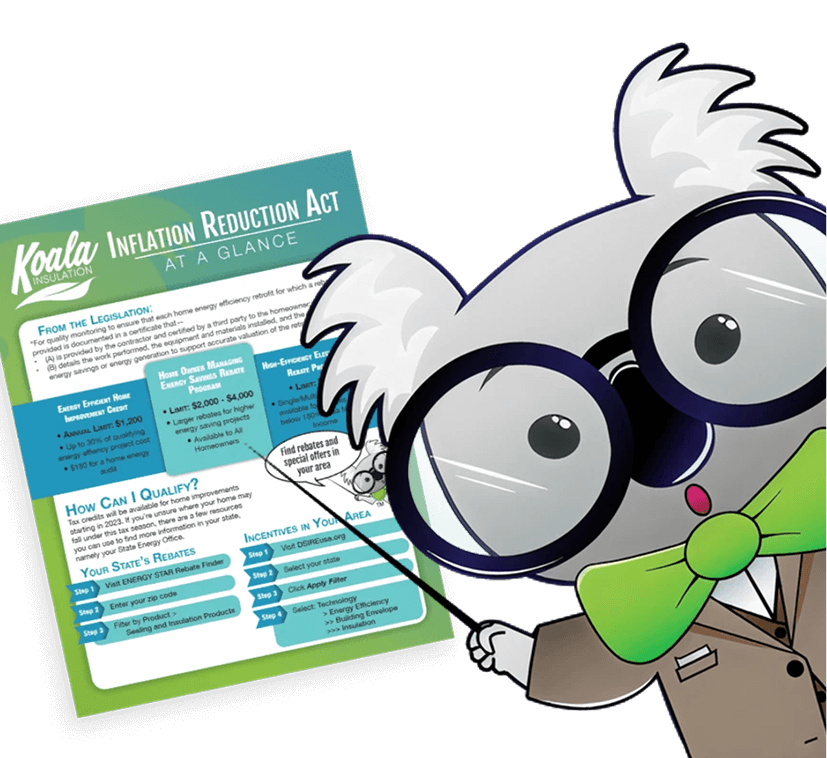Spray Foam Myths Debunked

Spray foam insulation, especially compared to other types of more traditional insulation, offer many benefits for homeowners in South Florida. While spray foam insulation has been on the market for a while, there are still some myths and misconceptions spreading around about it. That’s why the pros at Koala Insulation of North Broward and Boca are here to debunk some of the most common myths about spray foam insulation.
The first liquid insulation solution is able to enter small cracks and crevices that other, non-liquid insulations, might not be able to get into and seals them tightly when it expands and hardens into foam. Spray foam has the highest R-value on the market and is therefore an incredibly efficient and effective insulation when it comes to thermal regulation. Aside from its energy-efficient characteristics, spray foam also offers other benefits like keeping moisture (and therefore mold), pests and allergens out of your home.
1. Myth: Spray foam insulation is too expensive.
One of the common myths floating around about spray foam insulation is that the initial investment for spray foam insulation may be higher than other types of insulation, but it pays off in the long run. Because spray foam insulation is so effective, you’ll end up saving money on your energy bills. In addition, spray foam lasts much longer than other types of insulation (80+ years compared to 15-20 years!), so you won’t have to replace it as often.
2. Myth: Spray foam is difficult to install
This is not a complete myth as installing spray foam is a complex task that might be too difficult to DIY for many homeowners. However, spray foam can be installed by a professional in just a few hours as they have the proper special equipment and training.
3. Myth: Spray foam is highly toxic
Another one of the most prevalent myths revolving around spray foam insulation is that it can pose health risks. Many people believe that spray foam is highly toxic and dangerous to use in the home but this is simply not true. While it is true that spray foam contains chemicals, they are not nearly as harmful as many people think. Nevertheless, a professional installer will always suit up as these chemicals are released in the installation process; zero off gassing should occur after the curing process is complete. Spray foam insulation is completely safe once it is installed and does not emit any dangerous fumes.
To ensure safety and proper installation, the installation process should be carried out by professionals. They are aware of the necessary precautions to take and have protective gear as well as the right tools. This way, there is less room for mistakes and dangers and insulation is installed properly.
4. Myth: It harms the roof
If you've been told that spray foam insulation can damage your roofing materials or void their warranty, don't believe it! In most cases, spray foam insulation will not harm your roofing materials and will not void their warranty. In fact, spray foam insulation can actually increase the structural integrity of a home and prevent damage to your home.
There are a few exceptions to this rule – if you have very old or damaged shingles, or if your roof is not properly ventilated, spray foam insulation could cause problems. However, in most cases, spray foam insulation will actually improve the lifespan of your roof by protecting it from the elements and keeping it cooler in summer and warmer in winter.
5. Myth: Spray foam suffocates the home
Spray foam insulation has been shown to be one of the most effective ways to insulate a home or building. It creates an airtight seal that helps to keep the Florida heat out of your home. While it is true that spray foam insulation can make a home or building more airtight, this is not necessarily a bad thing. Proper ventilation can still be used to manage the indoor air quality. Many contractors believe that the building structure should be “sealed tight and ventilated right.”. This will ensure that the home or building is energy efficient and comfortable all year round.
Some people think that foam insulation can completely cut off a home's ventilation, leading to a humid indoor climate. However, humidity levels and airflow in your home should actually be controlled by the HVAC system, and not through cracks in the walls or windows. Foam insulation's role is not to facilitate air control, but it does keep air-conditioned air inside your home, reducing your electricity and heating bills.
6. Myth: Closed-cell is better than open-cell
The debate between closed-cell foam and open-cell foam is one that has been around for quite some time. Each type of foam has its own set of benefits and drawbacks, making it better or worse for different applications. Open-cell spray foam insulation is of lower density and works well for walls and attics. Closed-cell spray foam is more rigid, better for smaller spaces and flood-resistant. One is not better than the other, so you shouldn’t pick one based on this misconception. Determine what your insulation needs are and go from there.
Closed-cell foam is often lauded for its many benefits, chief among them being its water resistance. This makes it an ideal choice for any project where moisture might be present. Additionally, closed-cell foam is also more rigid than open-cell foam, making it better suited for projects that require a bit more support. Some high-performance spray foams demonstrate wind uplift resistance by meeting the High Velocity Hurricane Zone (HVHZ) criteria of the Florida Building Code and therefore perform better during hurricanes.
With all of these myths debunked, do you think spray foam might be the perfect solution for your home? Give us a call to book your free insulation evaluation and we’ll advise you on which type of insulation would work best for you and your home.
Find Your Location


Get a quote



